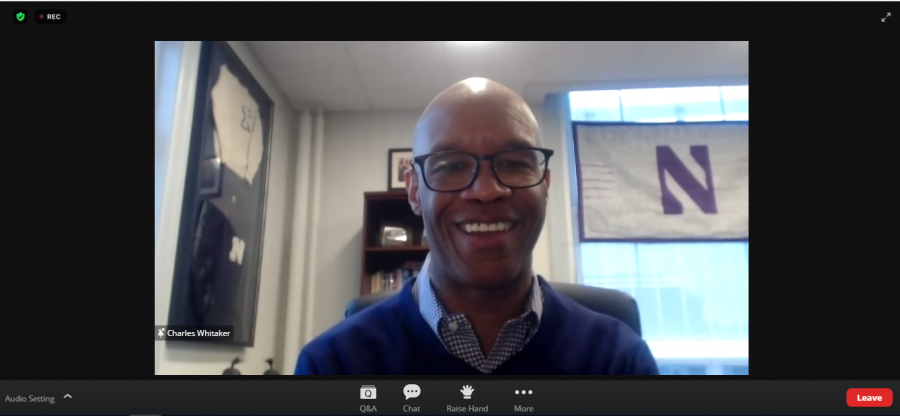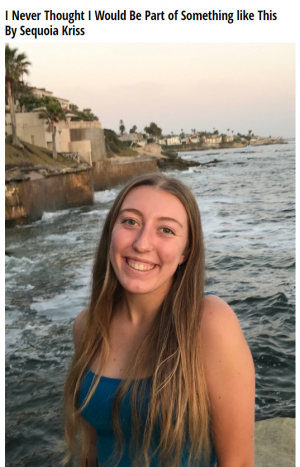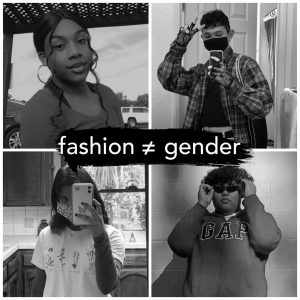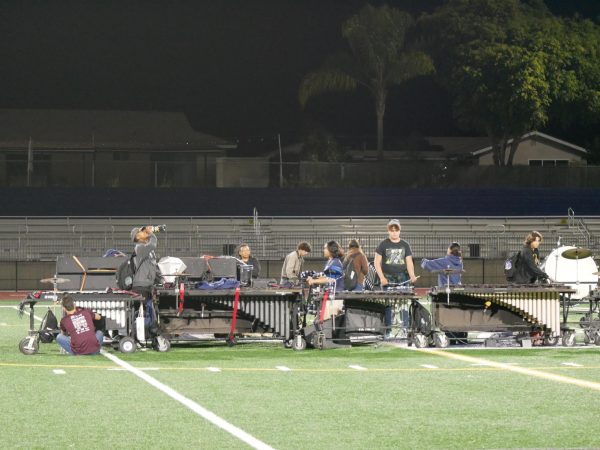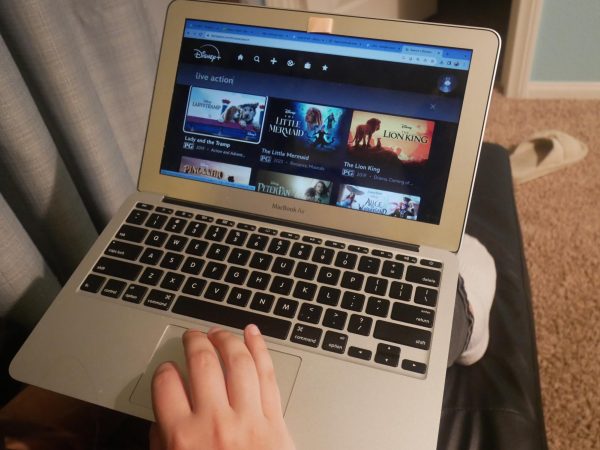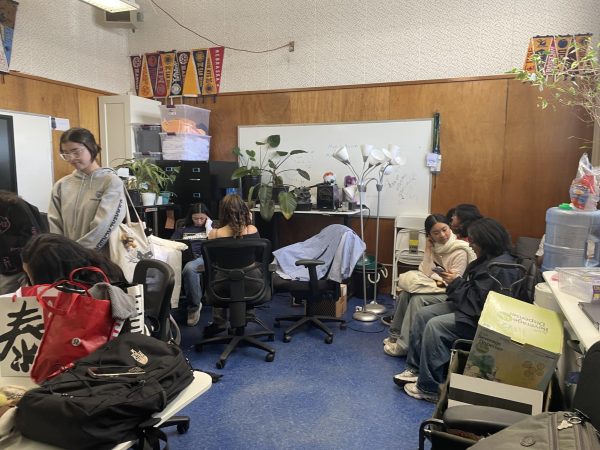Wisdom in writing
Black Student Union hosts journalism webinar
Whittaker sits down as a guest to talk about his journalism experience. Participants ask questions to learn more about his journey.
The sound of keyboards typing, mice clicking and the pounding hearts of students could be heard as they scurried from lunch to a webinar hosted by the Bonita Vista High’s (BVH) Black Student Union (BSU). On Jan. 29 at 1:00 pm, Dean and Professor at Northwestern University’s Medill School of Journalism Charles Whitaker answered student’s questions about journalism and media.
According to BSU co-President and co-founder Renee Fagan, they wanted to hold this webinar to remind students that they are not alone during the COVID-19 pandemic. Distance learning might have students feeling isolated, so talking to guest speakers like Whitaker is important to feel connected again.
“It is so important [to have guest speakers] because it shows [students] opportunities of what they could do,” Fagan said. “[There is] a whole world out there [filled with people]; the world is your oyster, so crack it open and get your hands dirty.”
Fagan explains how BSU is an inviting community of “black and brown students” and their allies, who talk about social and political issues that affect the BVH community. BSU reviews what young people can do to equip themselves with tools to combat injustice. In doing so, they wanted to invite passionate individuals to talk to students, such as Whitaker—their first guest speaker.
“Historically, this country has done its best to put [people of color] down. But, having groups and organizations like BSU to raise awareness on how we are important [and] how we matter is so beneficial to BVH as a whole and the black community,” Fagan said.
This webinar was mainly focused on media as well as journalism, and per the words of BSU advisor Don Dumas, students that are not interested in either “are still consumers of journalism and media.” Therefore, the webinar was not exclusive to the BSU students.
“Everyone has Twitter, Instagram and Snapchat. These are all forms of media. Just being at this webinar and hearing Whitaker answer questions, talk about representation in media, how media is a product sold to the public [and] understanding how it’s changing and where it’s at now is beneficial to everyone,” Dumas said.
Fagan’s first encounter with Whitaker left her “in awe” because of how much he has done in journalism and the opportunities he has provided for young black people to learn new skills. Fagan could relate to Whitaker because they both grew up with the same magazines, and she felt sorrow when Whitaker informed her that black magazines are diminishing in popularity.
“I remember having Essence magazine and Ebony Magazine when I was growing up. [I admired] how it was a black magazine made by people that are black [who] look like me,” Fagan said. “[I was sad after] hearing how black magazines are almost completely wiped out because everything is moving digitally. We grew up with [those magazines] on our [Fagan and Whitaker] coffee table, but now it’s just not the same anymore.”
A member of BSU and panelist at the webinar Kelsey Brito realized that journalism has a lot of under representation for people of color, especially Black people in America. Brito describes how African American journalists are really empowering because they show that “skin color does not determine our strengths.”
“Hearing that [Whitaker] was a journalist and representing the black community in such an occupation was really moving for me. Before I even entered the seminar, I was ready for him to exceed my expectations,” Brito said.
Brito was heavily motivated by Whitaker to follow her passions. As she listened to Whitaker’s journey towards becoming a journalist and how it was not as easy as everyone thought, Brito related.
“[Listening to Whitaker provides] inspiration and motivation because a lot of students in highschool start to lose passion and motivation for what they want to do. I definitely have been through that a couple of times, and if I had a guest speaker like Mr. Whitaker, I think I would never have given that up,” Brito said. “By hearing from someone that is in the business, in the industry, it’s really moving because it shows me that they are not the only ones; I can [fulfill all those careers too].”
Fagan said that the main message from this webinar was that knowledge is power, and being able to provide that knowledge to the public is powerful. The amount of effort it takes to inform the public has really inspired Fagan.
“Depending on who writes and who gets the information, [it] can be either detrimental or can be revolutionary. I want to be a part of the people who make writing revolutionary,” Fagan said.
I am a junior at Bonita Vista High, and a second year staff member on the Crusader. I love being able to meet new people, and having conversations with...

